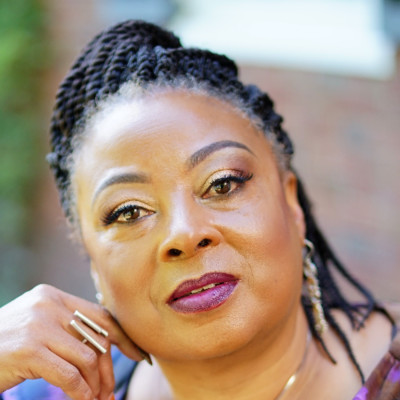
Kim Graham currently serves as the coordinator of the newly formed Trauma Academy of Delaware State University. She is charged with facilitating the development of courses and training tracks that will assist both practitioners and students be responsive to trauma, and nuanced needs of specific communities. Two tracks of note are African Centered Healing, and Responding to the Trauma of Domestic Violence. Prior to this role, Ms. Graham served Christina Cultural Arts Center, a community school of the arts with a commitment social justice; and providing access to the arts and arts education, for over 20 years. In this capacity, Ms. Graham partnered with schools to provide a continuum of arts-based education from pre-k through high school employing strategies for youth development based on strength-based, culturally competent, trauma informed tenants. Serving at-promise youth at varying points on the prevention-intervention continuum through the arts was a key component of the work. Ms. Graham holds a Master of Arts in clinical psychology from West Chester University, with a concentration in psychodrama. In addition to the 20 years spent engaging youth, and serving adults, educators, children and their families, Kim has more than five years of experience providing therapeutic support in the drug and alcohol field. These opportunities have provided tangible knowledge of both the impact of trauma on children and their families, and the realities of vicarious trauma and historical trauma. Kim leads Trauma Matters Delaware’s Community Based Healing Subcommittee, and serves as a member of the Higher Education Subcommittee. She is a member of the Delaware Department of Education’s Thrive Advisory Board, which supports the advancement of Delaware Schools on the continuum to becoming trauma informed.
2021 Conference Session
Mirror, Mirror On the Wall: Looking NTU You
The current sociopolitical and cultural climate of the U.S. has resulted in many individuals and groups examining their racial identity in ways they may not have done before. The impact of low cultural ‘self-esteem’ on wellbeing has never been more in the forefront. What a great opportunity to engage in ‘self reflection’ at a level that embodies the power of Ubuntu: I am because we are. Participants will reflect on their individual self, their communal self – and all of the spaces within.
This session will employ expressive arts and storytelling to guide participants in exploring the development of their racial identity (Nigrescence). The focus being to identify areas of resilience, areas for deeper healing, and personal and community growth. Like Kwaku Anansi, They will weave tale of triumph and dream catchers for their future.
